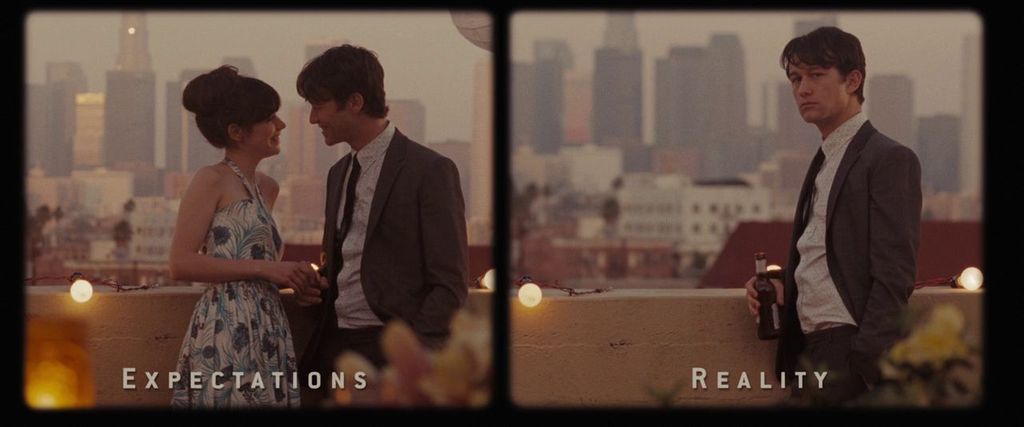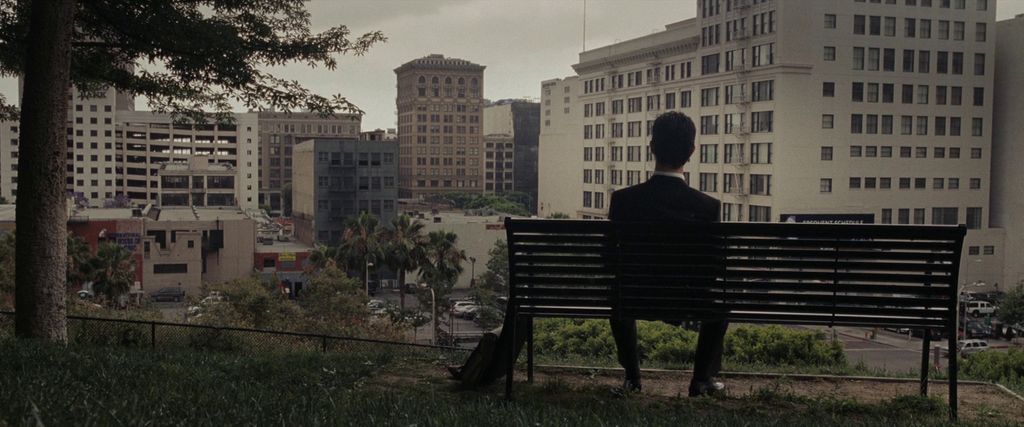500 Days Of Summer And Its Warm Golden Glow
May 22, 2019 • 64 views
I knew I was going to like 500 Days of Summer even before I watched it. For one, the hype for this movie came from the right places – I’d seen some amazing video essays that featured or referred to it – and not from any rabid fans. But more than the story or the themes that the movie dealt with, what really had me excited was the technical aspects of the movie.
I have always been a sucker for movies that are warmly colored – tinted with yellow, and color palettes that include oranges, browns, creams, reds and greens – and it was an obvious choice for a movie that has summer in its title. The movie looks and feels like a fairytale because of that, and it also keeps the movie from sinking into hopelessness even when the protagonist is clearly suffering. The story is also told non-linearly, which is a technique that I’ll probably never get tired of, and this movie knew exactly how to use it – often scenes would repeat, giving us newer information each time and cleverly drawing parallels. Last, but definitely not the least, it used split screens in a way that I’ve always wanted to. Action would take place simultaneously on both sides, naturally, without making concessions for any difficulty the audience may have; unapologetic. This is used often in the movie, mostly to contrast between the two leads, but my favorite usage is when Tom’s expectations and his reality are shown side by side. That scene was immensely satisfying to watch. Flashback montages, especially during the opening credits, were also very aesthetically pleasing.

The music was also surprisingly very enjoyable. I don’t generally like romance movies, with very obvious romantic song choices; I think of myself above all that. However, I found myself nodding along to many of the songs, and I couldn’t help humming along to the Carla Bruni song. I should also talk about the narrator here. I hate it when movies use a convenient narrator to introduce things in the beginning, a narrator that plays no part in the story, and who never appears again. 500 Days of Summer keeps the narrator consistent, and he appears throughout the movie. But choosing to have narrations in certain places, I felt, took away from some of the subtlety that this movie employs really well.
The plot is a simple one, but amazing performances from the cast elevate it into something more. Tom is a hopeless romantic who meets Summer, a girl who doesn’t believe in love. Their relationship is one doomed to collapse and the movie makes no secret of that, beginning the story with their breakup. Tom sinks into utter despair after all his attempts to win her back end in failure. The movie moves beyond this simple premise, exploring the various stages of their relationship as Tom tries to figure where things went wrong, in a way that was somewhat reminiscent of Annie Hall. The movie also offers a beautiful perspective on doomed romances, without instilling in us feelings of hopelessness.
Like many protagonists, Tom starts off believing a lie about the world he lives in, a lie that prevents him from achieving real happiness. The advent of Summer shatters this illusion and he is confronted with the possibility that all he believes is wrong. We see him come to a slow acceptance as the movie progresses, and in his final meeting with Summer he tells her how she caused him to discard his beliefs. However, as she and the movie tell us, Tom was not wrong about the existence of love, but only about Summer. And unlike most movies that feature this essential lie, we see our protagonist regain his beliefs, but now wiser than he was before. It’s just not something you see in a lot of movies, and I loved the change. I would’ve loved to go into the nuances of relationships and of doomed love seen in the movie, but perhaps that’s a topic for another day.

I love how the final scene, where the new girl’s name is revealed to be Autumn (special shoutout to how the scene is bathed in an orange glow), is so clearly a nod to the audience (Joseph Gordon-Levitt actually breaks the fourth wall in that scene) meant only to reinforce the movie’s ideas about coincidence and Fate. It hints at a possible happy ending, but promises nothing.
